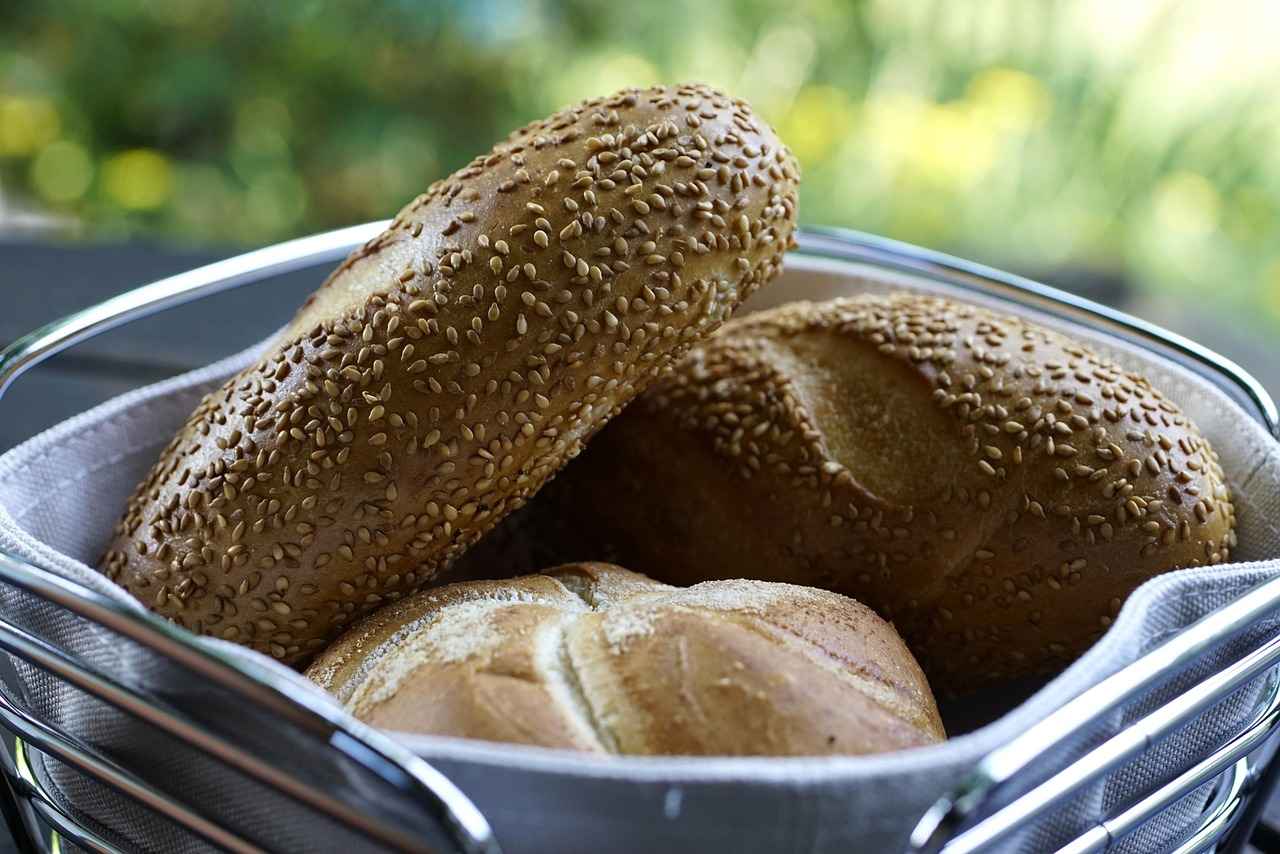This article explores the intriguing phenomenon of heightened taste perception following fasting, examining the physiological and psychological factors that contribute to the enjoyment of food after a period of abstinence from eating.
The Science Behind Taste Perception
Understanding taste perception involves exploring how our taste buds and olfactory senses work together to create flavor experiences. Our taste buds, located on the tongue, detect five basic tastes: sweet, salty, sour, bitter, and umami. When we fast, the body undergoes several changes that can enhance these sensory experiences.
Physiological Changes During Fasting
Fasting triggers a series of physiological changes in the body, including alterations in hormone levels and metabolism. These changes can significantly enhance the sensory experience of eating. For instance, during fasting, the body increases its sensitivity to flavors, making food taste more vibrant and enjoyable.
- The Role of Ghrelin
- How Ghrelin Increases Appetite
- Ghrelin’s Impact on Taste Buds
Ghrelin, often referred to as the hunger hormone, plays a crucial role in appetite regulation. This hormone not only signals hunger but also influences taste sensitivity and food cravings during and after fasting. Research indicates that higher levels of ghrelin can lead to an increased appreciation of flavors once food is consumed.
As fasting continues, ghrelin levels rise, stimulating hunger and enhancing the desire for food. This heightened state of hunger can lead to a more intense appreciation of flavors, making the first bite after fasting particularly pleasurable.
Studies suggest that ghrelin may enhance taste perception. The surge in ghrelin levels during fasting can make food taste more pleasurable, creating a rewarding experience when we finally eat.
- Changes in Taste Bud Sensitivity
Fasting can lead to temporary changes in taste bud sensitivity. After a period of abstinence, the taste buds may become more responsive, resulting in heightened enjoyment of food. This increased sensitivity can make flavors pop, transforming even simple meals into delightful experiences.
The Psychological Aspect of Eating After Fasting
The psychology of eating plays a crucial role in how we perceive flavors. Factors such as anticipation and reward can significantly enhance the enjoyment of food after fasting.
- Anticipation and Reward
- Mindful Eating Practices
The anticipation of eating after fasting can amplify the overall experience. The brain releases dopamine, a neurotransmitter associated with pleasure, when we finally consume food, enhancing taste perception and making the meal feel more rewarding.
Fasting often encourages a more mindful approach to eating. Being present during meals can enhance flavor appreciation, allowing individuals to savor each bite and fully enjoy the sensory experience of food.
Impact of Food Choices After Fasting
The types of food consumed after fasting can significantly affect taste perception. Choosing the right foods can enhance or diminish the enjoyment of eating.
- High-Flavor Foods
- Hydration and Its Role
Foods rich in flavor, such as fruits, spices, and savory dishes, can be particularly enjoyable after fasting. These foods often provide a burst of flavor that is especially appealing when hunger is at its peak.
Hydration levels can also influence taste perception. Drinking water before a meal can enhance the flavors of food consumed after fasting, making the overall eating experience more satisfying.
In summary, the combination of physiological changes, psychological factors, and food choices plays a pivotal role in why food tastes so good after fasting. By understanding these elements, we can appreciate the rich flavors of our meals even more.

The Science Behind Taste Perception
Understanding taste perception is a fascinating journey into the intricate workings of our sensory systems. The experience of flavor is not solely determined by taste buds; it is a complex interplay between our gustatory (taste) and olfactory (smell) senses. This section delves into the biology of taste, exploring how these senses collaborate to create the rich tapestry of flavors we experience, especially after periods of fasting.
Our taste buds, located primarily on the tongue, detect five basic tastes: sweet, salty, sour, bitter, and umami. However, the perception of flavor is significantly enhanced by the olfactory receptors in our nose, which detect volatile compounds released from food. This synergy between taste and smell is crucial; approximately 80% of what we perceive as taste actually comes from our sense of smell. During fasting, the absence of food can heighten our sensitivity to these flavors, making the first bite after a fast a truly remarkable experience.
Moreover, the biology of taste is influenced by various factors, including hormonal changes that occur during fasting. For instance, levels of the hormone ghrelin increase when we are hungry. Ghrelin not only stimulates appetite but also enhances taste sensitivity. This means that when we finally eat after fasting, our taste buds may be more receptive, amplifying the enjoyment of flavors.
Fasting also leads to physiological adaptations that can alter our taste perception. Research indicates that prolonged fasting may temporarily increase the number of taste buds or enhance their responsiveness, leading to a more intense flavor experience. This phenomenon can explain why foods seem to taste better after a period of abstinence.
Furthermore, the psychological aspect of taste perception cannot be overlooked. The anticipation of eating after fasting can amplify our sensory experiences. When we eagerly await our first meal, our brain releases dopamine, a neurotransmitter associated with pleasure and reward. This heightened anticipation can transform the act of eating into a more fulfilling experience, enhancing our appreciation of flavors.
In summary, understanding taste perception involves recognizing the critical roles of both our biological systems and psychological factors. The combination of heightened sensitivity in taste buds, the influence of hormones like ghrelin, and the emotional anticipation of eating all work together to create a profound enjoyment of food after fasting. This intricate dance of biology and psychology not only explains why food tastes so good after fasting but also highlights the remarkable capabilities of our sensory systems.

Physiological Changes During Fasting
Fasting is a practice that has been embraced for centuries, not only for its spiritual benefits but also for its profound effects on the body. During fasting, the body undergoes a series of physiological changes that can significantly alter how we perceive taste and enjoy food. This section explores the intricate relationship between fasting and the sensory experience of eating, focusing on the hormonal and metabolic shifts that occur during this period of abstinence.
One of the most notable changes during fasting is the fluctuation in hormone levels. When we refrain from eating, the body responds by adjusting the production of various hormones, including insulin, cortisol, and ghrelin. These hormonal changes play a critical role in not just hunger regulation but also in enhancing our sensory experience when we finally eat.
- Insulin Sensitivity: Fasting improves insulin sensitivity, which can lead to a more pronounced taste experience. When insulin levels are lower, the body becomes more efficient at processing sugars and carbohydrates, allowing for a more vibrant flavor profile when we consume food.
- Cortisol and Stress: The stress hormone cortisol can heighten alertness and sensitivity to taste. During fasting, cortisol levels may rise, making the experience of eating feel more rewarding and pleasurable.
Another significant hormone involved in this process is ghrelin, often referred to as the “hunger hormone.” Ghrelin levels increase during fasting, signaling the brain that it is time to eat. This surge in ghrelin not only stimulates appetite but can also enhance taste sensitivity. Research suggests that higher levels of ghrelin may lead to a more intense appreciation of flavors, making food taste better after a fasting period.
Moreover, fasting can lead to temporary changes in taste bud sensitivity. Studies indicate that the sensory receptors in our taste buds may become more responsive after a period without food. This heightened sensitivity can result in a more enjoyable eating experience, as flavors seem more pronounced and satisfying.
In addition to the biological changes, the act of fasting can also create a psychological shift that enhances the enjoyment of food. The anticipation of eating after a fast can amplify the overall experience, making each bite feel like a reward. This psychological aspect is crucial, as it intertwines with the physiological changes to create a holistic sensory experience.
In summary, the physiological changes that occur during fasting—such as alterations in hormone levels and taste bud sensitivity—significantly enhance the sensory experience of eating. Understanding these changes not only sheds light on why food tastes so good after fasting but also highlights the complex interplay between our bodies and our perceptions of flavor.
The Role of Ghrelin
Ghrelin, often referred to as the hunger hormone, is a peptide hormone produced primarily in the stomach. It plays a crucial role in regulating appetite and energy balance, particularly during periods of fasting. This section will explore how ghrelin affects taste sensitivity and food cravings, especially during and after fasting.
When the body enters a fasting state, ghrelin levels significantly increase. This surge in ghrelin serves as a biological signal, prompting the brain to stimulate hunger and encourage food intake. Research indicates that heightened levels of ghrelin not only trigger feelings of hunger but also enhance the sensitivity of taste buds. This means that foods consumed after fasting may taste more intense and pleasurable.
During fasting, the body undergoes various physiological changes. One of these changes includes an increase in ghrelin, which can lead to a heightened appreciation of flavors. Studies have shown that individuals who are fasting often report stronger cravings for specific foods, particularly those rich in sugars and fats. This phenomenon can be attributed to the way ghrelin interacts with the brain’s reward pathways, making certain foods seem more appealing.
Moreover, ghrelin’s impact on taste perception is not limited to just increasing cravings; it also enhances the overall sensory experience of eating. When ghrelin levels rise, it may lead to an increase in the number of taste receptors activated, thereby intensifying the flavors experienced. This heightened taste perception can make meals after fasting not just satisfying but also a delightful experience.
Additionally, the relationship between ghrelin and taste sensitivity can be further understood through the lens of psychological factors. The anticipation of consuming food after a fasting period can amplify the effects of ghrelin. The brain associates food with pleasure, and this anticipation can lead to increased dopamine release, further enhancing the enjoyment of flavors.
It is also essential to consider the types of food consumed after fasting. Foods that are rich in flavor, such as fruits, spices, and savory dishes, may become particularly appealing. The interaction between ghrelin and these flavorful foods can create a satisfying eating experience, making the act of breaking a fast more enjoyable.
In summary, ghrelin plays a pivotal role in appetite regulation and taste sensitivity, especially during and after fasting. Its ability to enhance flavor perception and stimulate cravings can significantly influence the overall eating experience. Understanding the dynamics of ghrelin can provide insights into not only the biological mechanisms of hunger but also the psychological factors that contribute to our enjoyment of food.
As we delve deeper into the relationship between ghrelin and taste perception, it becomes evident that this hormone is more than just a signal for hunger; it is a key player in how we experience and enjoy food, particularly after periods of fasting.
How Ghrelin Increases Appetite
Understanding the Mechanism of Ghrelin
Ghrelin, often referred to as the “hunger hormone,” is a peptide hormone produced primarily in the stomach. Its primary role is to signal hunger to the brain, stimulating appetite and food intake. When fasting occurs, ghrelin levels significantly increase, which can lead to a heightened sense of hunger. This phenomenon is not merely about feeling hungry; it also enhances our appreciation of flavors once we finally consume food.
The Connection Between Ghrelin and Taste Sensitivity
Research indicates that elevated ghrelin levels can influence taste sensitivity. When we fast, the body adjusts by increasing ghrelin production, which not only makes us crave food but also heightens our sensory experience when we eat. This means that flavors can seem more intense and enjoyable after a fasting period. The interaction between ghrelin and taste buds suggests that the hormone may enhance the overall flavor experience, making food taste significantly better.
Physiological Responses During Fasting
During fasting, several physiological changes occur that contribute to the overall experience of eating. The body enters a state of heightened awareness, where the senses become more acute. This state can amplify the flavors of food, making each bite more satisfying. Additionally, the brain becomes more responsive to taste stimuli, which can make even simple foods seem more flavorful.
Psychological Factors Influencing Taste
The psychological aspect of eating after fasting cannot be overlooked. Anticipation plays a crucial role in how we perceive flavors. The longer we wait to eat, the more we build up an expectation for the meal. This anticipation can enhance the pleasure of eating, leading to a more rewarding experience. Furthermore, the emotional connection we have with food can also influence our taste perception. For many, the first meal after a fast is not just about satiating hunger; it becomes a moment of indulgence and enjoyment.
Mindful Eating and Enhanced Flavor Appreciation
Fasting often encourages individuals to practice mindful eating. This approach involves being fully present during meals, focusing on the flavors, textures, and aromas of the food. By slowing down and savoring each bite, we can enhance our appreciation for the meal. Mindful eating allows us to reconnect with our food, making the experience more enjoyable and fulfilling.
Impact of Food Choices on Taste After Fasting
- High-Flavor Foods: Foods rich in flavor, such as fruits, spices, and savory dishes, can be particularly enjoyable after fasting. These foods often provide a burst of flavor that can be even more pronounced after a period of abstinence.
- Hydration: Hydration levels before a meal can also impact taste perception. Drinking water can cleanse the palate and enhance the flavors of the food consumed after fasting, making the overall experience more pleasurable.
In summary, the relationship between ghrelin, appetite, and taste perception is complex and multifaceted. Understanding how fasting impacts these elements can enhance our eating experiences, making each meal more enjoyable and satisfying. By acknowledging the physiological and psychological factors at play, we can cultivate a deeper appreciation for food, especially after periods of fasting.
Ghrelin’s Impact on Taste Buds
Research has shown that ghrelin, often referred to as the “hunger hormone,” plays a crucial role in regulating appetite and influencing our sensory experiences related to food. When we fast, our body responds by increasing the levels of ghrelin, which not only stimulates hunger but also enhances our taste perception. This section delves into how fasting-induced ghrelin levels can significantly elevate the pleasure we derive from eating.
During fasting, as ghrelin levels rise, the body undergoes a series of physiological changes that affect our taste buds. Studies indicate that elevated ghrelin levels can lead to increased sensitivity in taste perception. This means that flavors which may have seemed muted or less appealing before fasting can become more pronounced and enjoyable after a period of abstinence from food. The heightened sensitivity can transform a simple meal into a delightful experience, making even ordinary foods taste extraordinary.
Furthermore, the connection between ghrelin and taste perception is not solely biological; it also encompasses psychological dimensions. The anticipation of eating after a fast can amplify the sensory experience. When ghrelin levels are elevated, the brain signals an increased desire to savor flavors, enhancing the overall enjoyment of food. This phenomenon occurs as the brain associates the intake of food with pleasure, further intensifying the experience of taste.
To illustrate this point, consider the following:
- Flavor Intensity: Foods that are rich in flavors, such as fruits, spices, and savory dishes, can become more appealing after fasting. The increased ghrelin levels may make these flavors more vibrant and enjoyable.
- Psychological Reward: The brain’s reward system becomes more active when ghrelin levels rise, leading to a greater appreciation for the flavors and textures of food.
- Mindful Consumption: Fasting often encourages individuals to practice mindful eating, allowing them to fully engage with the sensory aspects of their meals.
Moreover, the impact of hydration cannot be overlooked. Drinking water before a meal can also enhance taste perception, making flavors more pronounced. When combined with the effects of ghrelin, proper hydration can further elevate the enjoyment of food after fasting.
In conclusion, the role of ghrelin in enhancing taste perception is a fascinating interplay of physiological and psychological factors. As ghrelin levels rise during fasting, they not only stimulate hunger but also heighten our sensitivity to flavors, making the experience of eating more pleasurable. Understanding this connection can help individuals appreciate their meals more fully and enjoy the flavors that food has to offer.
Changes in Taste Bud Sensitivity
are a fascinating aspect of the human experience, particularly in relation to fasting. When we abstain from eating, our body undergoes various physiological transformations that can temporarily alter how we perceive flavors. This section delves into these changes and how they can enhance the enjoyment of food after a fasting period.
During fasting, the body activates several mechanisms that affect taste perception. One of the primary factors is the reduction in constant exposure to flavors. With fewer stimuli, our taste buds may become more sensitive. This heightened sensitivity can lead to a more profound appreciation of flavors once we resume eating.
- Increased Sensitivity: Research indicates that fasting can enhance the sensitivity of taste buds. As we refrain from consuming food, our taste receptors may become more responsive, allowing us to detect subtle flavors that we might otherwise overlook.
- Hormonal Changes: Fasting triggers hormonal shifts in the body, particularly in hormones like ghrelin and leptin. These hormones play a significant role in hunger and satiety, but they also influence taste perception. Elevated ghrelin levels during fasting can heighten the enjoyment of food once we eat.
- Neurological Responses: The brain’s response to fasting may also contribute to changes in taste perception. Increased dopamine levels, associated with reward and pleasure, can make food seem more appealing after a period of abstinence.
Moreover, the psychological aspect of fasting cannot be overlooked. Anticipation plays a crucial role in how we experience flavors. When we fast, we often build up a craving for specific foods, and this anticipation can amplify the enjoyment of those foods once we finally consume them. The brain associates the act of eating with reward, making the experience more pleasurable.
Another important factor is the role of mindfulness in eating. After fasting, individuals may approach their meals with a greater sense of awareness and appreciation. This mindfulness can lead to a richer sensory experience, as we take the time to savor each bite and fully engage with the flavors present in our food.
Additionally, the types of foods consumed after fasting can significantly affect taste perception. Foods that are rich in flavor, such as fruits, spices, and savory dishes, can be particularly enjoyable. These foods often contain compounds that stimulate taste buds more effectively, leading to an enhanced flavor experience.
In conclusion, the changes in taste bud sensitivity that occur during fasting can lead to a heightened enjoyment of food. By understanding the physiological and psychological mechanisms at play, we can appreciate the profound impact that fasting has on our culinary experiences. Whether it’s the increased sensitivity of our taste buds, the hormonal fluctuations that enhance flavor perception, or the anticipation that builds during fasting, each element contributes to a more satisfying eating experience once we break our fast.

The Psychological Aspect of Eating After Fasting
is a fascinating area that delves into how our minds influence our perception of flavors. This section aims to uncover the mental and emotional factors that significantly enhance the enjoyment of food following a fasting period.
Fasting can create a unique psychological state that heightens our awareness and appreciation of food. When we refrain from eating, we often develop a strong anticipation for our next meal. This anticipation is not merely about hunger; it also involves a complex interplay of emotions and memories associated with food. As we approach the end of a fasting period, our minds begin to conjure images of our favorite dishes, which can amplify our cravings and enhance the overall experience of eating.
Anticipation can significantly alter our taste perception. When we know that we will soon break our fast, the brain releases dopamine, a neurotransmitter associated with pleasure and reward. This release heightens our senses and can make food taste even better than usual. The psychological reward of eating after a period of abstinence serves to reinforce positive associations with food, encouraging us to savor each bite.
Fasting often promotes mindful eating, which can lead to a deeper appreciation of flavors. When we are more present during our meals, we become attuned to the various tastes and textures of the food. This mindfulness can transform eating from a routine activity into a pleasurable experience. By focusing on the flavors and sensations, we can enhance our overall satisfaction and enjoyment of the meal.
Food is often tied to memories and emotions, which can play a significant role in our enjoyment of meals after fasting. Many people associate certain foods with comfort, celebration, or family gatherings. When we finally eat after fasting, these emotional connections can heighten our sensory experience. The flavors may evoke nostalgic feelings, making the food taste even better.
Eating is often a social activity, and the company we keep can influence our enjoyment of food. Sharing a meal with others can enhance the flavors we perceive, as laughter and conversation create a positive atmosphere. The psychological aspect of eating in a social setting can lead to increased satisfaction and a more profound appreciation of the food.
The types of food consumed after fasting can also impact our psychological experience. Foods that are rich in flavor, such as fruits, spices, or savory dishes, are often more enjoyable after a fast. These high-flavor foods can trigger strong sensory responses, making the eating experience more satisfying. Additionally, the act of choosing foods that we genuinely enjoy can enhance our emotional state, further enriching our meal.
In summary, the psychological aspect of eating after fasting is a multifaceted experience. Factors such as anticipation, mindfulness, emotional connections, social influences, and food choices all contribute to how we perceive flavors. By understanding these elements, we can enhance our enjoyment of food and create more meaningful eating experiences.
Anticipation and Reward
The experience of eating after a period of fasting is not just about satisfying hunger; it is a complex interplay of physiological and psychological factors that heightens the enjoyment of food. One of the most significant aspects of this experience is the anticipation associated with eating. This anticipation can amplify our perception of taste, making the first bite of food after fasting feel incredibly rewarding.
When we fast, our bodies enter a state of heightened awareness regarding food. The brain begins to associate food with a reward, as the absence of eating triggers a sense of longing and desire. This psychological effect is rooted in the brain’s reward centers, which become more active when we are deprived of something we enjoy, such as food. The anticipation of breaking a fast can lead to increased levels of excitement and satisfaction when we finally indulge.
Studies have shown that the expectation of a rewarding experience can alter our sensory perceptions. In the case of food, when we anticipate a meal, our brain releases dopamine, a neurotransmitter associated with pleasure and reward. This release can enhance our taste perception, making flavors seem more vibrant and enjoyable. The mere thought of eating can trigger physiological responses, including saliva production and heightened sensitivity in taste buds, preparing our bodies for the anticipated meal.
Moreover, the psychological aspect of reward does not just stop at anticipation. Once we begin to eat, the brain continues to process the experience through a lens of reward. Each bite can feel more satisfying, and the flavors can seem more intense than they would otherwise. This phenomenon is often described as a ‘rewarding feedback loop,’ where the enjoyment of the meal reinforces the anticipation, making the experience even more pleasurable.
Mindful eating practices can further enhance this effect. When we focus on the flavors and textures of food, we are more likely to appreciate the nuances that might otherwise go unnoticed. This mindfulness can be particularly potent after fasting, as our senses are heightened and our appreciation for food is amplified. By being present during the meal, we can fully engage with the experience, leading to greater satisfaction and enjoyment.
In conclusion, the anticipation of eating after fasting plays a crucial role in enhancing our overall experience of food. The psychological factors of reward and expectation not only influence how we perceive taste but also enrich the emotional satisfaction derived from eating. By understanding these dynamics, we can cultivate a more fulfilling relationship with food, transforming meals into truly rewarding experiences.
Mindful Eating Practices
have gained significant attention in recent years, particularly in the context of fasting. When we fast, we often develop a deeper appreciation for food, which can transform our eating habits and enhance our overall dining experience.
Being present during meals is essential for mindful eating. This practice encourages us to slow down and truly savor each bite, allowing us to engage our senses fully. By focusing on the flavors, textures, and aromas of our food, we can cultivate a more profound connection with what we consume.
Research indicates that mindful eating can lead to a more satisfying eating experience. When we fast, our bodies crave nourishment, and this heightened sense of hunger can make the act of eating feel more rewarding. By practicing mindfulness, we can amplify this effect, leading to greater enjoyment of our meals.
- Enhancing Flavor Appreciation: Mindful eating encourages us to notice the subtleties in flavor that we might overlook when eating mindlessly. This can include the sweetness of a ripe fruit or the spiciness of a well-seasoned dish.
- Improved Digestion: Eating slowly allows our bodies to better digest food. Chewing thoroughly and taking our time can lead to improved nutrient absorption and a more comfortable eating experience.
- Increased Satisfaction: When we eat mindfully, we often feel more satisfied with smaller portions. This is because we are more in tune with our body’s hunger and fullness cues, reducing the likelihood of overeating.
Moreover, mindful eating can help us develop a healthier relationship with food. By focusing on the present moment and appreciating our meals, we can reduce emotional eating and cravings that often arise from stress or boredom. This shift in perspective can lead to long-term changes in our eating habits, promoting overall well-being.
Incorporating mindful eating practices into our daily routine can be simple. Here are some practical tips:
- Eliminate Distractions: Try to eat in a quiet environment, free from screens and other distractions. This helps you focus on your meal.
- Engage Your Senses: Take a moment to observe the colors and presentation of your food. Smell the aromas and notice the textures as you eat.
- Chew Slowly: Aim to chew each bite thoroughly. This not only enhances flavor but also aids in digestion.
- Listen to Your Body: Pay attention to your hunger and fullness cues. Stop eating when you feel satisfied, even if there is food left on your plate.
Ultimately, mindful eating after fasting can significantly enhance our relationship with food. By embracing this practice, we can cultivate a more enriching and fulfilling eating experience that resonates with our physical and emotional well-being.

Impact of Food Choices After Fasting
After a period of fasting, the types of food we choose to consume can have a profound impact on our overall eating experience. This section delves into how different food choices can either enhance or diminish the enjoyment of eating, particularly after a fast.
The flavors of food are influenced by various factors, including ingredients, preparation methods, and cultural contexts. After fasting, our taste buds are often more sensitive, making the flavor profiles of certain foods stand out even more. Foods that are rich in umami, for example, can provide a satisfying depth of flavor that is particularly appealing after a period of abstaining from food.
- Fruits: Fresh fruits like berries and citrus are not only hydrating but also packed with natural sugars and vibrant flavors that can be very enjoyable after fasting.
- Spices: Incorporating spices such as cinnamon, cumin, and ginger can enhance the taste of meals, making them more exciting and flavorful.
- Fermented Foods: Foods like kimchi and yogurt can add a unique tanginess and depth to meals, enhancing overall flavor perception.
Hydration plays a crucial role in taste perception. Drinking water before a meal can help cleanse the palate, allowing the flavors of the food to shine through more clearly. Additionally, being well-hydrated can enhance our ability to detect subtle flavors, making the eating experience more enjoyable.
Texture and temperature of food also significantly influence enjoyment. After fasting, foods that are warm and have a pleasing texture can enhance the overall experience. For instance, soups and stews can be comforting and satisfying, while crunchy vegetables can provide a delightful contrast.
Engaging in mindful eating practices can further enhance the enjoyment of food consumed post-fasting. By focusing on the flavors, textures, and aromas of the food, individuals can cultivate a deeper appreciation for their meals. This practice not only increases satisfaction but also encourages healthier eating habits.
While certain foods can enhance the enjoyment of eating after fasting, others may have the opposite effect. Foods that are overly processed or high in sugars can lead to a quick spike in energy followed by a crash, diminishing the overall experience. It’s essential to choose foods that provide lasting satisfaction and nourishment.
In summary, the types of food consumed after fasting can significantly affect taste perception and overall enjoyment. By choosing high-flavor foods, staying hydrated, and practicing mindful eating, individuals can enhance their eating experience and make the most out of their meals after fasting.
High-Flavor Foods
are often more appealing after fasting due to a variety of physiological and psychological factors that enhance our perception of taste. When we abstain from eating, our body undergoes several changes that can make the experience of eating more enjoyable, particularly when it comes to foods that are rich in flavor.
One of the key reasons fruits and spices are so appealing post-fast is their vibrant flavors and aromas. After a period of fasting, our taste buds can become more sensitive, making the natural sweetness of fruits like mangoes, berries, and pineapples taste even more delightful. The sugar content in these fruits can provide a quick energy boost, which is especially satisfying after a fast.
Moreover, spices such as cinnamon, ginger, and cayenne pepper can add layers of complexity to meals, making them more enjoyable. These spices not only enhance flavor but also contribute to a sense of warmth and satisfaction. When incorporated into dishes, they can stimulate the palate and create a more fulfilling eating experience.
Additionally, the act of breaking a fast with high-flavor foods can be psychologically rewarding. The anticipation built during fasting can amplify the enjoyment of the first bites. This psychological aspect is crucial; when we look forward to something, it often tastes better than we expect. The combination of heightened taste sensitivity and the psychological reward of eating after a fast creates a unique experience that is hard to replicate.
Another factor to consider is the role of hydration. After fasting, our bodies may be dehydrated, which can dull taste perception. Drinking water before consuming high-flavor foods can enhance their taste. The water helps to prepare the taste buds, making them more receptive to flavors. Therefore, pairing fruits and spices with adequate hydration can significantly enhance the overall flavor experience.
In summary, the appeal of high-flavor foods post-fast can be attributed to a combination of physiological changes, psychological anticipation, and the importance of hydration. By choosing flavorful options like fruits and spices, individuals can maximize their enjoyment of food after fasting, turning a simple meal into a delightful experience.
Hydration and Its Role
Hydration plays a crucial role in our overall health and well-being, but it also significantly impacts our taste perception. When we consume water before a meal, it can enhance the flavors of the food we eat afterward, especially after a period of fasting. This section explores the intricate relationship between hydration and taste perception, detailing how adequate fluid intake can elevate our culinary experiences.
Understanding Taste Perception
Our sense of taste is not solely dependent on the taste buds; it is a complex interplay between taste and smell. Hydration affects saliva production, which is essential for tasting food effectively. Saliva contains enzymes that break down food particles, allowing taste buds to detect flavors more efficiently. When we are well-hydrated, our saliva production increases, leading to a more pronounced flavor experience.
The Importance of Drinking Water Before Meals
Drinking water before meals can prepare our palate for the flavors to come. It not only helps cleanse the mouth but also primes the taste buds for a more intense sensory experience. Research indicates that individuals who hydrate adequately before eating report a heightened appreciation of flavors. This phenomenon is particularly noticeable after fasting, where the contrast between an empty stomach and the first bite of food can be striking.
Physiological Benefits of Hydration
- Enhanced Salivation: Proper hydration ensures that our body produces enough saliva, which is vital for taste perception.
- Improved Digestion: Water aids in digestion, allowing for better absorption of flavors from the food.
- Regulation of Body Temperature: Staying hydrated helps maintain body temperature, which can influence how we perceive taste.
Hydration and Fasting
During fasting, the body undergoes various changes that can affect taste perception. When we finally break our fast, the flavors of food can seem more intense. If we drink water prior to eating, it can amplify this effect. The act of hydrating can awaken our taste buds, making the first bites of food after fasting feel more rewarding and flavorful.
Practical Tips for Optimal Hydration
- Drink a glass of water 30 minutes before your meal to enhance flavor perception.
- Incorporate hydrating foods, such as fruits and vegetables, into your meals.
- Monitor your hydration levels throughout the day, especially before and after periods of fasting.
Conclusion
In summary, the role of hydration in taste perception cannot be overstated. By ensuring that we are adequately hydrated, especially before meals, we can significantly enhance our enjoyment of food, particularly after fasting. This simple practice can lead to a more satisfying and flavorful eating experience, making each meal a delightful occasion.
Frequently Asked Questions
- Why does food taste better after fasting?
After fasting, your body experiences heightened taste sensitivity due to changes in hormone levels, particularly ghrelin. This hormone not only stimulates hunger but also enhances your ability to savor flavors, making each bite feel more rewarding.
- What role does ghrelin play in taste perception?
Ghrelin, often referred to as the hunger hormone, increases during fasting. It not only boosts appetite but also heightens taste bud sensitivity, leading to a more intense appreciation of flavors once you start eating again.
- How does fasting affect my eating habits?
Fasting can lead to more mindful eating practices. When you finally eat, you’re more likely to savor each bite, paying attention to flavors and textures, which enhances overall enjoyment.
- Are certain foods more enjoyable after fasting?
Absolutely! Foods that are rich in flavor, like fruits and spices, tend to be particularly enjoyable after fasting. Your taste buds are primed for a burst of flavor, making these foods even more appealing.
- Does hydration impact how food tastes after fasting?
Yes! Staying hydrated can significantly influence taste perception. Drinking water before a meal can enhance the flavors of the food you eat post-fast, making your meal even more satisfying.












